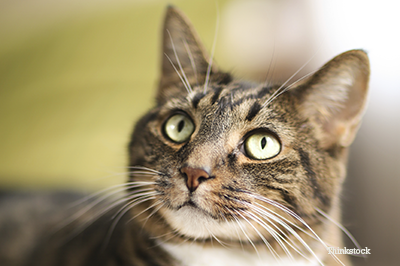
Recently my cat was diagnosed with diabetes. This is my second diabetic cat! Both were over 8-years old. Is this just an unfortunate coincidence?
Perhaps because cats are living longer lives and many cats are overweight, the incidence of “sugar diabetes” or diabetes mellitus is becoming more commonly diagnosed in pet cats. It is likely that cats sharing a home and a lifestyle are equally at risk for the disease. Early signs of diabetes may be subtle and mild -- weight loss, increased hunger and thirst are examples. Blood and urine tests are necessary to diagnose the disease and most cats (once diagnosed and treated appropriately) live very normal lives.
Incidence and causes of diabetes in cats
Diabetes develops in about 1 in 100-200 cats1. An increased incidence of diabetes mellitus has been noted in Burmese cats in Australia and the UK. Diabetes mellitus can occur due to a deficiency of insulin or because of an inability of the body to respond to insulin2. Without insulin, the body can’t utilize glucose. In diabetic cats, excess glucose is eliminated by the kidneys, producing frequent urination. There is a need to compensate for the increased urination by drinking unusual amounts of water.
Pancreatitis, hyperthyroidism, medications such as megestrol acetate (Megace), and some corticosteroids all have the potential to cause or mimic diabetes in a cat. Obesity is a predisposing factor for all cats, and Burmese cats may have a genetic predisposition. Male cats have twice the risk of females. At greatest risk are neutered male cats over 10 years of age and over 15 pounds in weight.
One possible reason that diabetes is more common in old cats is that, quite simply, they have been exposed to potential causes longer.
How can I prevent diabetes in my older cats?
A proper diet and regular exercise can go a long way to avoiding the development of feline diabetes. Aside from other negative effects, obesity is also known to contribute to insulin resistance.
If you have any questions or concerns, you should always visit or call your veterinarian -- they are your best resource to ensure the health and well-being of your pets.
References:
1. http://todaysveterinarypractice.epubxp.com/i/321264-may-jun-2014/15
2. Caninsulin.com http://www.caninsulin.com/diabetes-mellitus-cats.asp
